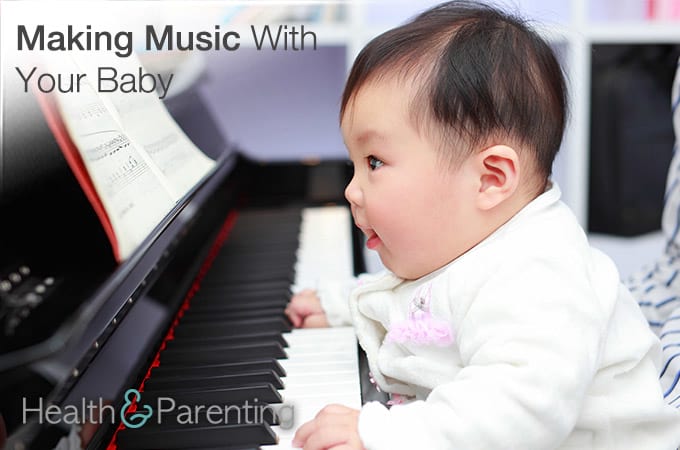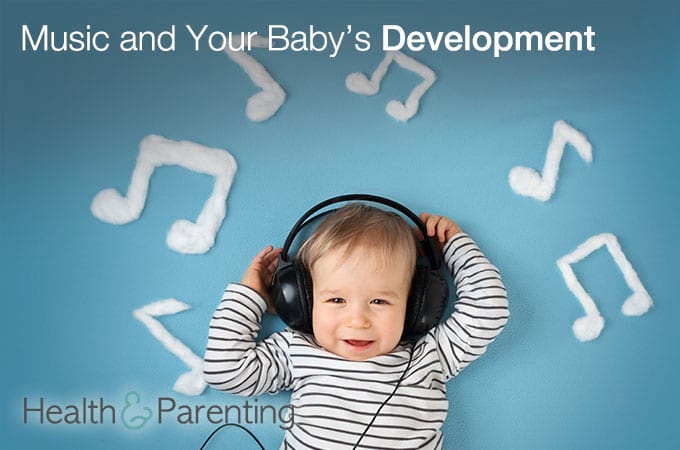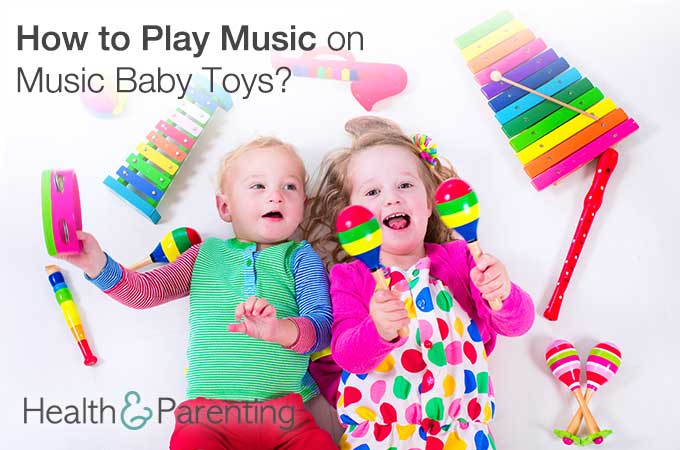Isn’t the first year of a baby’s life a miraculous thing? Just think about how much your little one has grown and changed in the last few months. It wasn’t all that long ago that he or she couldn’t even roll over or crawl yet. And now they are sitting up, pulling themselves up on furniture, and getting into just about everything.
It’s incredible.
As your little one grows, he or she is becoming more and more interested in sound. You’ve probably noticed it already; the way they squawk just to hear the sounds of their own voices, or the way they seem to love pounding objects together to see what kind of noise results.
This is the perfect age to start really introducing your baby to music!
Now, you’ve probably been doing that to some extent all along. Your little one has a favorite CD you like to play in the car, you sing a regular bedtime song, and he or she laughs manically when you break out your rendition of the Itsy Bitsy Spider or How Much is That Doggy in the Window.
But now, you can really step things up by creating opportunities for your little one to actually contribute to that music making!
Kids this age love musical toys. Picking up a set of mini maracas or a small tambourine can provide hours of entertainment and music making. You might even find that a small drum set or train whistle becomes the toy of choice in your house.
Of course, introducing musical toys to your little ones means being prepared to up the noise ante in your home, but the smile on your baby’s face will make that seem all the more worth it!
If you are really hoping to instill a love of music in your little one, you might want to consider calling around to local music studios and finding out if they offer any baby and me music classes. These classes are usually geared towards little ones and involve playing with various instruments and becoming familiar with what the different notes look like. They won’t necessarily set your child up to be a musical prodigy in the future, but they can lay the groundwork for a love of music that will hopefully endure throughout childhood.
Ultimately, though, your little one is always going to have the most fun making music with you. So be sure to pick up a few instruments yourself and to join in on the chaos!
Written by Leah Campbell, infertility advocate, adoptive mama, writer and editor. Find me @sifinalaska on Twitter.
This information is not intended to replace the advice of a trained medical doctor. Health & Parenting Ltd disclaims any liability for the decisions you make based on this information, which is provided to you on a general informational basis only and not as a substitute for personalized medical advice. All contents copyright Health & Parenting Ltd 2016. All rights reserved.












